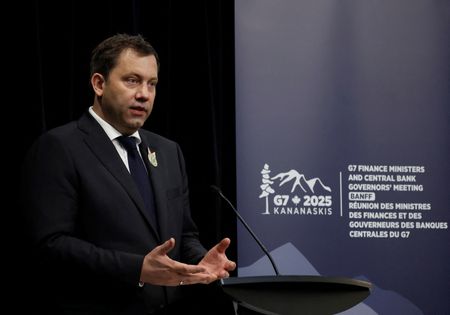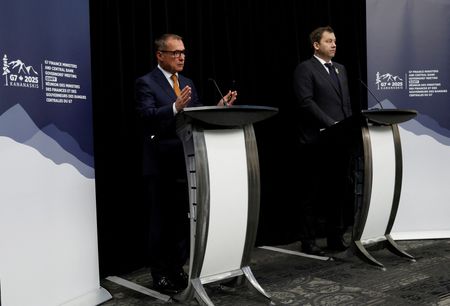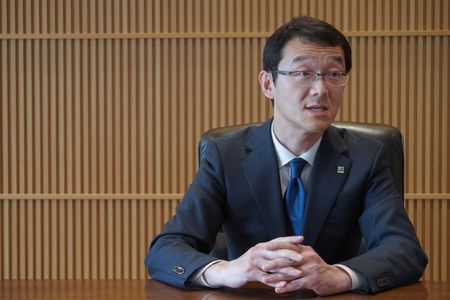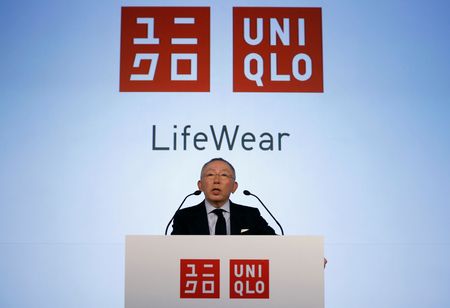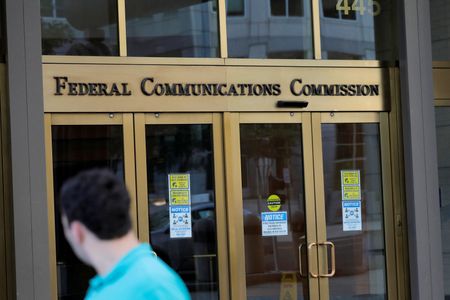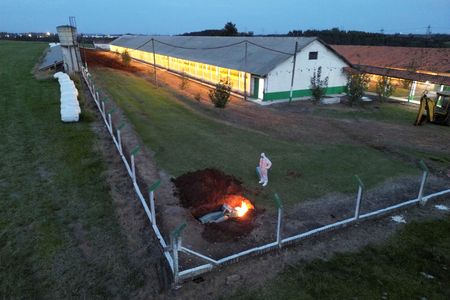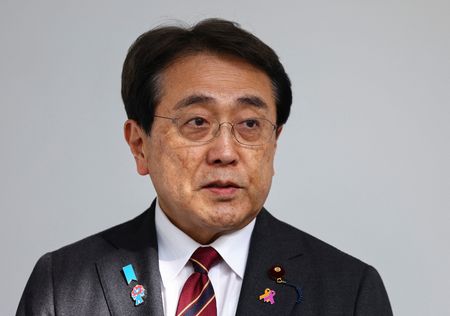By David Lawder, Promit Mukherjee and Julia Payne
BANFF, Alberta (Reuters) -Finance ministers and central bank governors from the Group of Seven democracies papered over their differences on Thursday, pledging to address “excessive imbalances” in the global economy and saying they could increase sanctions on Russia.
Ahead of the meeting there had been doubt about whether there would be a final communique, given divisions over U.S. tariffs and Washington’s reluctance to refer to Russia’s war on Ukraine as illegal. But after talks that stretched over three days, participants signed on to a lengthy document.
“We found common ground on the most pressing global issues that we face,” Canadian Finance Minister Francois-Philippe Champagne told the closing press conference.
“I think it sends a very clear signal to the world … that the G7 is united in purpose and in action.”
The finance ministers and central bank governors, who met in the Canadian Rocky Mountains, said there was a need for a common understanding of how “non-market policies and practices” undermine international economic security.
The document did not name China, but references by the U.S. and other G7 economies to non-market policies and practices often are targeted at China’s state subsidies and export-driven economic model.
The communique called for an analysis of market concentration and international supply chain resilience.
“We agree on the importance of a level playing field and taking a broadly coordinated approach to address the harm caused by those who do not abide by the same rules and lack transparency,” it said.
European Commission Executive Vice President Valdis Dombrovskis said the G7 ministers discussed proposals for further sanctions on Russia to try to end its war in Ukraine. They included lowering the G7-led $60-per-barrel price cap on Russian oil, given that Russian crude is now selling under that level, he said.
The G7 participants condemned what they called Russia’s “continued brutal war” against Ukraine and said that if efforts to achieve a ceasefire failed, they would explore all possible options, including “further ramping up sanctions.”
They also pledged to work together to ensure no countries that financed the Russian war would be eligible to benefit from the reconstruction of Ukraine.
“That’s a very big statement,” said Champagne, calling it a fundamental pillar of the communique.
Russia’s sovereign assets in G7 jurisdictions would remain immobilized until Moscow ended the war and paid for the damage it has caused to Ukraine, the communique said. It did not mention a price cap.
Brent crude currently trades around $64 per barrel.
A European official said the United States is “not convinced” about lowering the Russian oil price cap. A U.S. Treasury official did not immediately respond to a request for comment.
Champagne said the meeting discussed the tariffs that the United States has imposed on major trading partners but did not give details of the discussions.
The U.S. Treasury said earlier this week that Secretary Scott Bessent intended to press G7 allies to focus on rebalancing the global economy to protect workers and companies from China’s “unfair practices.”
The Chinese embassy in Ottawa said it could not immediately comment.
The communique also recognized an increase in low-value international “de minimis” package shipments that can overwhelm customs and tax collection systems and be used for smuggling drugs and other illicit goods.
The duty-free de minimis exemption for packages valued below $800 has been exploited by Chinese e-commerce companies including Shein and Temu.
(Reporting by David Lawder, Promit Mukherjee and Makiko Yamazaki in Banff and Anusha Shah in Bengaluru; additional reporting by David Ljunggren in Ottawa; Editing by Rod Nickel and Andrea Ricci)

